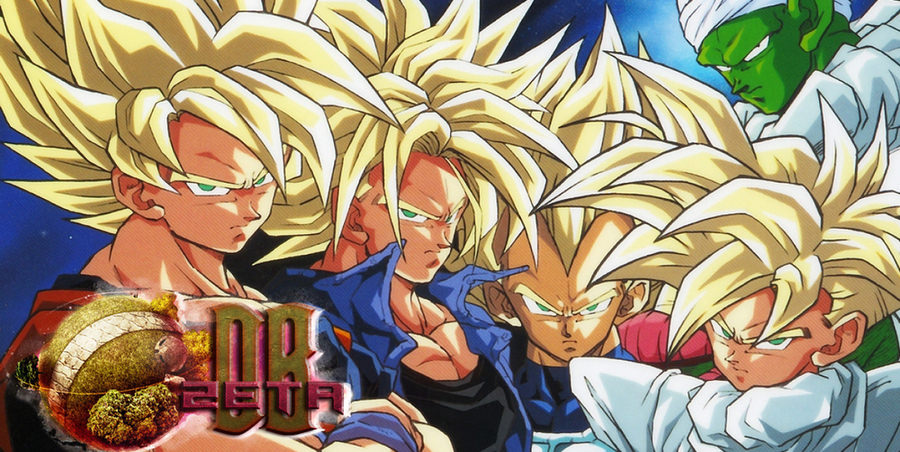In that case, I'll offer my answer for that too for each of the games I've played:
Final Bout - The Opening theme "The Biggest Fight" and Future Trunks' theme "Hikari no Willpower."
Budokai - It had more effort put into its cutscenes than any DBZ game would until the Xenoverse games and Kakarot. The music is also great regardless of the plagiarism stuff (this can apply for the whole trilogy, but I'll give it to Budokai as one of its best qualities as it doesn't have much to hold up compared to the other 2 instalments beyond the cutscenes). Either that, or the what-if scenario of Cell absorbing Kuririn for how crazy it was (and making Yamcha seem like not as much a joke).
Budokai 2 - Probably the hypothetical characters as already mentioned such as Yamuhan/Tiencha, Boo's new absorptions (Freeza, Cell, Vegeta, Yamcha & Tenshinhan) and Gotan/Gokule. Either that, or the board game aesthetic of the story mode and complete freedom of choice in characters making it have high replayability through doing things such as saving the Earth from Raditz and Nappa as the Champion Mr. Satan or foiling Freeza's plans on Namek as the Great Saiyaman in obstructions to the timeline that make those in the Cell Arc seem tame

.
Budokai 3 - So many options to pick, but I'd probably have to go with the story mode's what-ifs. Even though What-Ifs have become a mainstay of DB games, no other one essentially treat them as optional routes to go down after the first playthrough (unless counting the manner in which BT2's stories are unlocked).
Shin Budokai 1 and 2 - Both games stand out for having story modes that are a new story rather than recycling the same old events, even if the writing for them was far from good. There's also the arcade mode that offers some cool ideas such as acknowledging the uneasiness #18 would naturally have around Goku.
Supersonic Warriors 2 - Some of the team ultimate attacks were cool.
Super Dragon Ball Z - As mentioned in a previous thread, some choices in the roster such as Adult Chichi, Ultimate Gohan with the Z-Sword and Bazooka Mecha Freeza.
Budokai Tenkaichi - The Ultimate Battle mode. A ranking system of 100 characters (though some repeats towards the end) with your rank being in jeopardy if losing points with each character's rank not applying to all of them like in BT3 gives this mode a lot of replay value despite the combat being bad when you figure out there's only 3-4 types of combos in the game.
Budokai Tenkaichi 2 - The length of the story mode and its varied covering of events (DBZ Movies, GT and a few what-ifs).
Budokai Tenkaichi 3 - Either the vast roster and options for matchups, the underrated intricacy of its item customisation or having a lot more options for modes than most other instalments in the franchise.
Infinite World - Some of the minigame levels were cool ideas.
Burst Limit - The combat is basically a more refined version of Shin Budokais. Dramatic Pieces, whilst a pain to unlock, also offered a unique take on customisation.
Raging Blast - The What-If Saga was perhaps the most expansive in any DB game, apart from maybe the Supersonic Warriors series. Some of them were also fairly entertaining such Yamcha VS Vegeta or the couples' tournament.
Raging Blast 2 - Either its smooth combat or the general artstyle. Some choices in the roster were also interesting such as the prominence given to Hatchiyack and Tarble of all people.
Ultimate Tenkaichi - The game's take on battlefield destruction was nice, even if not to the same level as Budokai 3/BT2 and 3. There's also the custom characters, but it's hard to appreciate it with the sheer amount of grinding and cheese needed to progress with the battle system and the fact that Xenoverse's take on the same thing was infinitely better.
Battle of Z - The unique skills that some characters have makes teamwork and synergy a lot more important than in past games.
Xenoverse - The premise drawing from DBO's ideas was a nice choice and character customisation was great.
Xenoverse 2 - The combat and hub world are vastly improved from what Xenoverse 1 was, even if still having its flaws (camera angles being terrible at times, for one).
FighterZ - The interactions between many of the characters in the story mode.
Kakarot - Has by far the most detailed portrayal of the manga/anime's original story and expands on it through its substories providing new context or answering questionable parts of the canon.
Could've also included the Legacy of Goku series, but they're very much an RPG first and fighting game second to an even greater extent than Kakarot, not to mention I'd struggle to find anything to praise in the first game.
 .
.